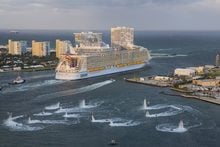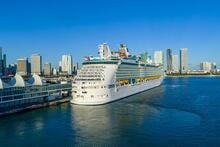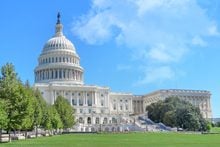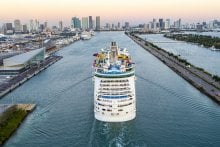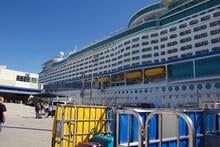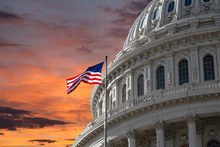A member of the Trump administration made a bold warning to foreign flagged vessels, including cruise ships, regarding avoiding paying taxes.
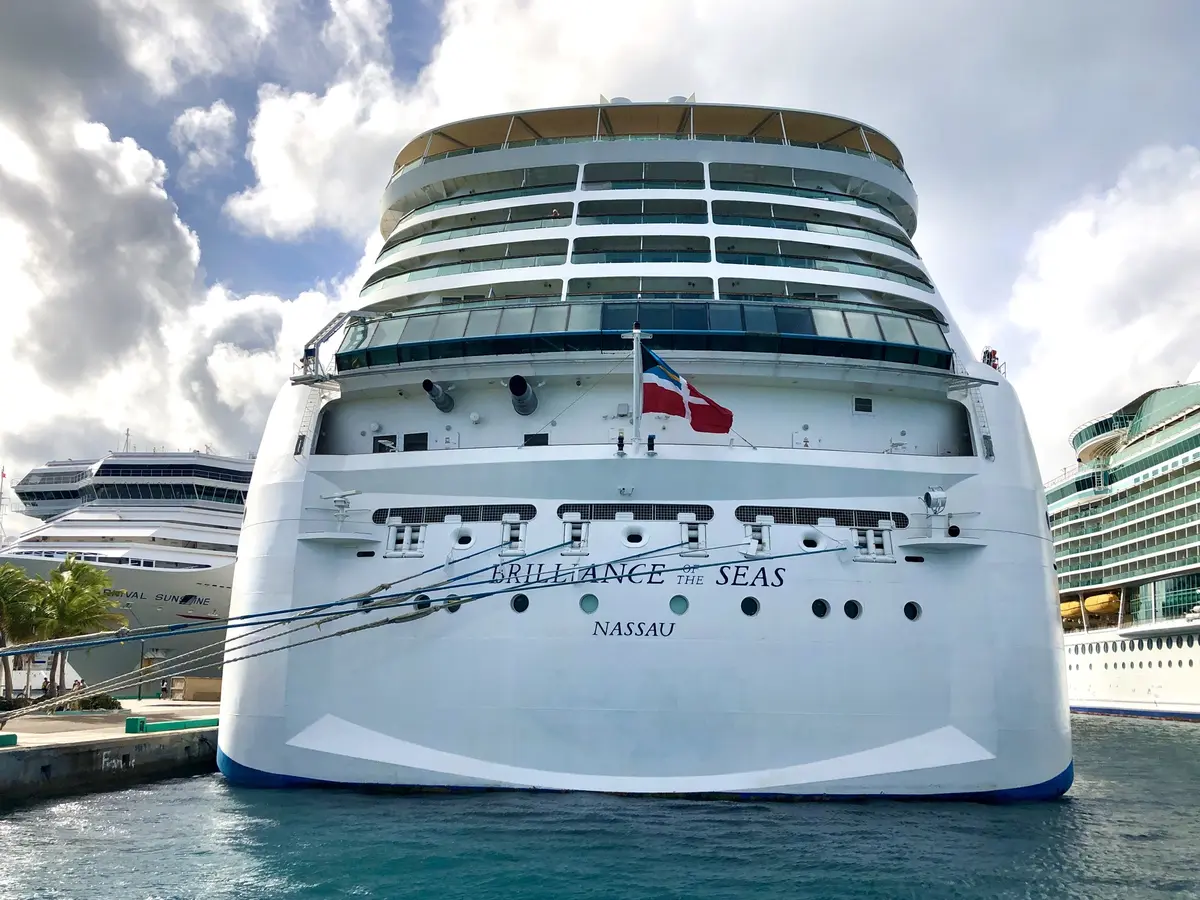
Secretary of Commerce Howard Lutnick appeared on Fox News on Wednesday talking about how U.S. President Donald Trump wants to abolish the Internal Revenue Service. He then went on a tirade about how cruise ships, super-tankers, and foreign produced alcohol don't pay taxes.
"None of em pay taxes...this is going to end and those taxes are going to be paid," Secretary Lutnick said.
He then pointed out how large ocean going vessels are all flagged in different countries, such as Panama or Liberia, in an effort to avoid federal income tax.
$CCL $RCL | Secretary of Commerce Howard Lutnick said President Trump’s goal is simple—abolish the IRS and “let all the outsiders pay.” He even pointed to cruise lines not paying taxes as an example.pic.twitter.com/2sXbMucD2p
— Wall St Engine (@wallstengine) February 20, 2025
The statement instantly sent cruise line stock prices down, with Royal Caribbean Group's stock down about 9% for the day on the Nasdaq exchange.
While no one disputes the fact the ships are foreign flagged, Secretary Lutnick is missing the bigger picture surrounding taxes and what cruise lines pay.
Cruise lines do a pay lots of taxes
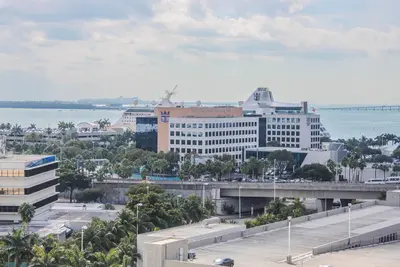
Federal income tax is one tax, but there are many others that cruise lines, such as Royal Caribbean, pay in large amount.
The major cruise lines have their headquarters in the United States. Carnival, Royal Caribbean, and Norwegian Cruise Line all have offices in Florida, where they employ thousands of Americans in their offices and across the country. They pay payroll taxes as well as a variety of fees.
Those fees include port fees, with just over 30 million passengers sailing through U.S. ports in a given year. As an example, Alaska alone adds $250-300 per person to a sailing in port fees.
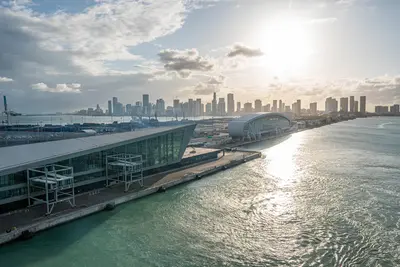
According to Cruise Lines International Association, cruise lines pay nearly $2.5 billion in taxes.
Plus, CLIA points out the halo effect the cruise industry has, which amounted to $65 billion in meaningful economic contributions to the US economy in 2023.
U.S. laws make it impossible to build a cruise ship with a U.S. flag on it
"You ever see a cruise ship with an American flag on the back?" Lutnick said.
Modern cruise ships simply aren't built in America, because the law has made it nearly impossible.
In 1886, U.S. President Grover Cleveland signed the Passenger Vessel Services Act into law to protect American jobs. Among the regulations this law added, for a ship to qualify to be flagged by the United States, it must be made at a U.S. shipbuilding facility, owned by an American company and staffed by an American crew. All the officers must be U.S. citizens and 70% of the crew must be at least resident aliens (Green card holders).
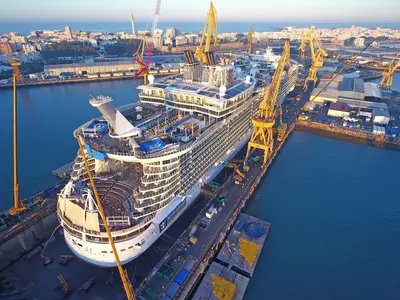
With that one exception, for the last 50 years, American shipbuilders have not riveted together a single cruise ship that fulfills the requirements set forth in 1886.
The only U.S flagged ships operating within the United States are river and coastal cruise lines that are quite small and extremely expensive. And Norwegian Cruise Line has Pride of America, which operates in Hawaii.
Following World War 2, the United States added strong protectionist legislation meant to preserve the maritime industry, but it actually had the reverse effect. Many shipyards domestically closed, and the few left are only focused on military work that rely on government paid contracts to ensure there is a profit.
You'll find most cruise ships built in shipyards in Europe or Asia. In fact, all of Royal Caribbean's ships have been built in one shipyard or another in Europe over the years.
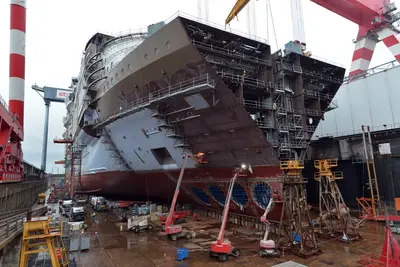
According to Commander Don Goldstein, Retired United States Coast Guard, American shipyards are not equipped with the experience building modern cruise ships, nor do they have the capacity or supply chain to assemble cruise ships.
Even if you wanted to convert a Royal Caribbean ship to a U.S. flagged one, it's impossible once again to U.S. law.
Coast Guard regulations provide that a U.S.-built vessel must be assembled entirely in the United States and all “major components of the hull and superstructure” must be fabricated in the United States.

The Coast Guard's policy through a number of precedents, has determined that a "component" must exceed 1.5 percent of the vessel’s steelweight to be considered "major."
Could additional port fees be the answer?
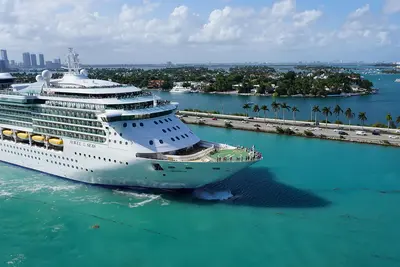
The comments about the cruise industry prompted speculation about what would realistically happen, if anything.
Vince Ciepiel with Cleveland Research thinks the most plausible "tax" would be to raise port fees for U.S. ports, similar to what Greece and Mexico have alluded to.
"Taking a quick look at port passengers, the U.S. sees just over 30M in passengers travel through U.S. ports (the two largest being Miami over 7M and Port Canaveral near 7M). If the U.S. government were to impose an additional ~$30 fee (not anchored to this guess, we welcome any feedback here) on passengers, that would raise about $1B in tax revenue," he explained.
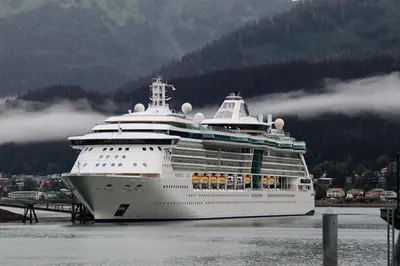
He believes if that scenario did materialize, the added taxes would be passed along to consumers, "An incremental $1B in price hikes on what is like $40B of ocean cruise industry revenue touching U.S. shores would be equivalent to a 2.5% price hike, which again does not seem that material/could probably easily be passed on to the consumer."


